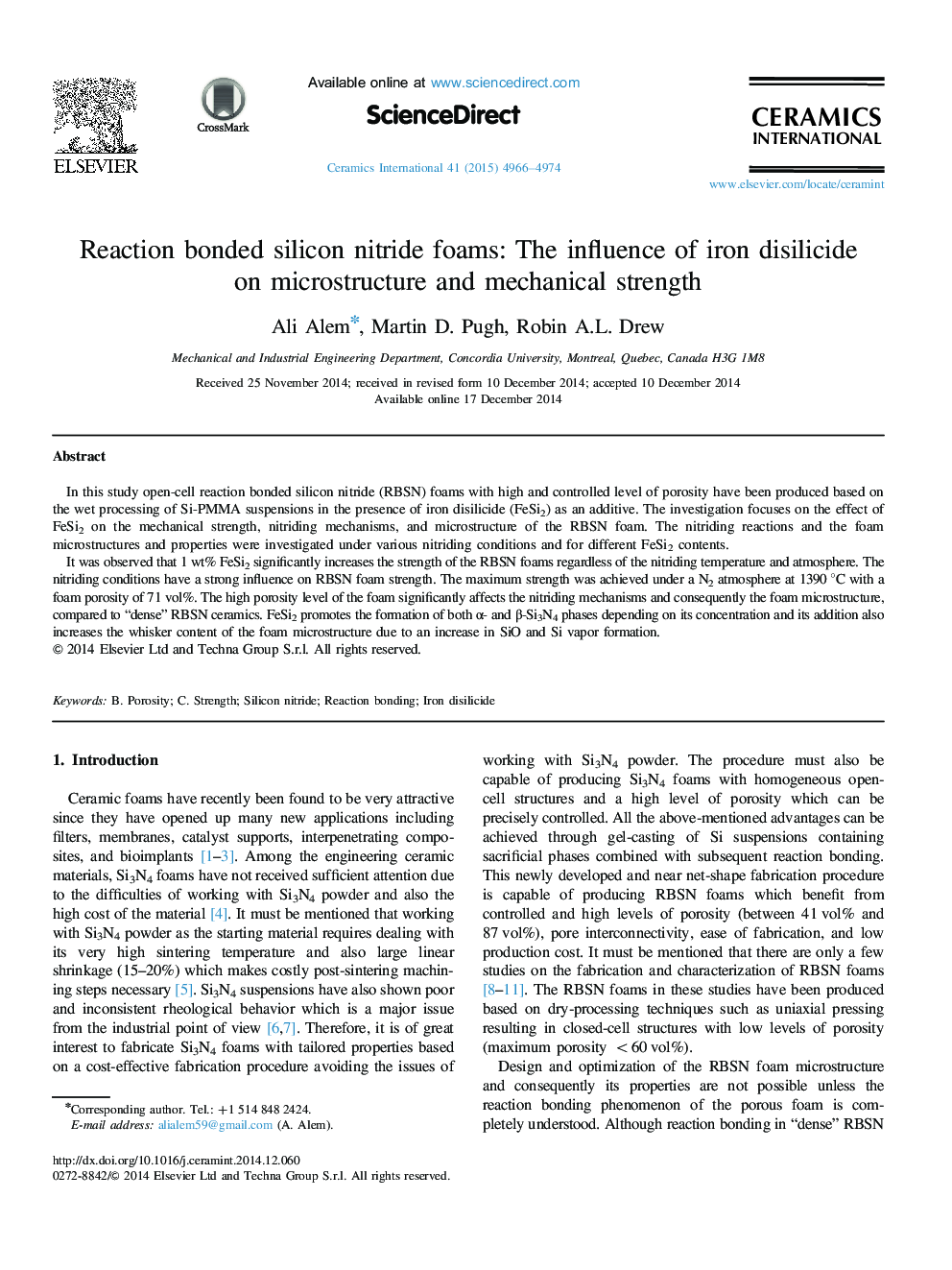| Article ID | Journal | Published Year | Pages | File Type |
|---|---|---|---|---|
| 1460385 | Ceramics International | 2015 | 9 Pages |
In this study open-cell reaction bonded silicon nitride (RBSN) foams with high and controlled level of porosity have been produced based on the wet processing of Si-PMMA suspensions in the presence of iron disilicide (FeSi2) as an additive. The investigation focuses on the effect of FeSi2 on the mechanical strength, nitriding mechanisms, and microstructure of the RBSN foam. The nitriding reactions and the foam microstructures and properties were investigated under various nitriding conditions and for different FeSi2 contents.It was observed that 1 wt% FeSi2 significantly increases the strength of the RBSN foams regardless of the nitriding temperature and atmosphere. The nitriding conditions have a strong influence on RBSN foam strength. The maximum strength was achieved under a N2 atmosphere at 1390 °C with a foam porosity of 71 vol%. The high porosity level of the foam significantly affects the nitriding mechanisms and consequently the foam microstructure, compared to “dense” RBSN ceramics. FeSi2 promotes the formation of both α- and β-Si3N4 phases depending on its concentration and its addition also increases the whisker content of the foam microstructure due to an increase in SiO and Si vapor formation.
